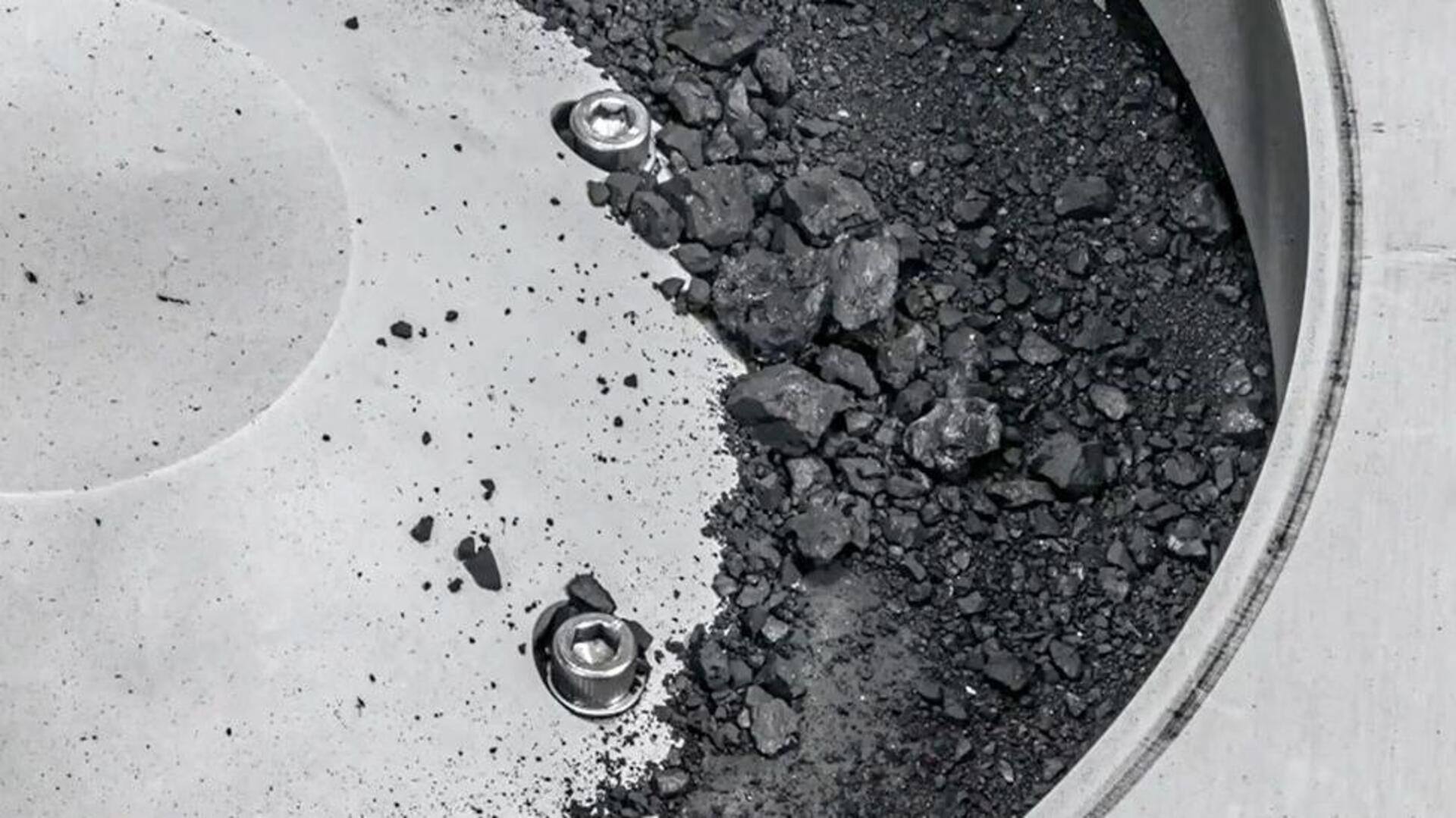
OSIRIS-REx asteroid sample offers clues to solar system's origins
What's the story
NASA has revealed an exciting sample from near-Earth asteroid Bennu, which could act as a time capsule from our solar system's early days.
The sample contains water and a significant amount of carbon, hinting that asteroids like Bennu might have brought life's building blocks to Earth.
The carbon and water molecules discovered in the sample play a crucial role in our planet's formation and could help trace the origins of life-sustaining elements.
Details
How was the sample collected?
In October 2020, NASA's OSIRIS-REx mission collected the sample, which landed on Earth in a capsule on September 24, touching down in the Utah desert.
The spacecraft got up close and personal with Bennu, using a Touch-and-Go Sample Acquisition Mechanism (TAGSAM) head to gather material from the asteroid's surface.
A nitrogen gas blast lifted rocks and dust, which then flowed into the TAGSAM head. Additionally, 24 surface contact pads on the head touched the asteroid, capturing fine-grained material.
What Next?
Insights into asteroid formation and evolution
The dust and rocks gathered from Bennu's surface and interior could unlock the asteroid's formation and evolution history.
This knowledge will also illuminate the space rock's overall composition, potentially aiding NASA in determining how to deflect the asteroid, as it poses a future impact risk to Earth.
This eagerly awaited reveal has been in the works for seven years, with some scientists waiting nearly two decades for this moment.
Insights
Global collaboration for sample analysis
For the next two years, scientists will examine the rocks and soil in a dedicated clean room at Johnson Space Center, in the US.
The sample will also be distributed to laboratories worldwide, including OSIRIS-REx mission partners at the Canadian Space Agency and Japanese Aerospace Exploration Agency.
Interestingly, about 70% of the sample will be kept pristine in storage, allowing future generations with advanced technology to uncover even more insights than currently possible.